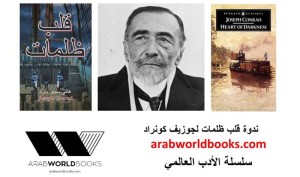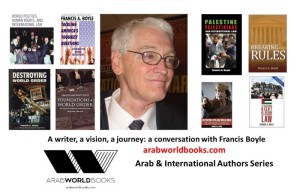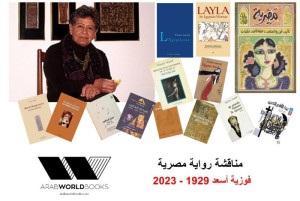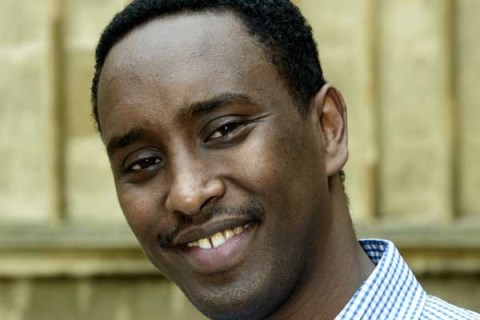“For about six months now,” said Khalid to Fr. Woodrath, his British neighbour and missionary. “I have been contemplating a lot. The human race is in big trouble and I have come to find out exactly what needs to be rectified. The problem had been there all along. If only I had paid closer attention, I could already have done a lot to improve the current state of affairs.”
“Tell me about it,” said Fr. Woodrath.
Khalid took a little notebook from his breast pocket, raised it in the air and said firmly. “Here’s the cure, Father. The ultimate solution! The first lines of what could go down in history as the script which saved mankind and his habitat from destruction.”
Fr. Woodrath’s curiosity was ignited. He pulled his chair closer and sat as if he was searching for some microscopic worm on Khalid’s face. He had come to the Kenyan coastal city of Mombasa about a decade earlier and had lived next door to Khalid’s grandfather since. Lately, he observed a peculiar change in Khalid. The young man hardly spoke, and when he did, it was brief, like someone who had recently been let in on a big secret. Sometimes, the holy man had seen him outside his grandfather’s house, reading maps and drawing figures under the afternoon shade. He paid no attention to his surroundings and was always absorbed in some serious business, with the focus and austerity of a scientist.
“The interesting part,” continued Khalid presently, “is that most of these solutions can’t possibly be understood in our present way thinking. One has to look beyond the surface. I have tried to explain this to my Somali mother; she waved me away as insane. My Yemeni grandfather did the same. I am sure it would be a waste of time convincing anyone, regardless of their religion, race or any other identity. At this stage I would rather be trusted without any lengthy explanations, the same way prophets are believed and trusted to be in contact with the...”
“Oh, so you have somehow peeped into the unconditional realm?” interrupted Fr. Woodrath.
“You are not getting it, Father,” said Khalid.
“You are not making sense either.”
“Okay, do you ever wonder why misfortunes are so frequent lately?”
“Like which ones for example?”
“Just the usual ones; sudden untimely deaths, cars crashing, ferries sinking, trees cut down.”
“Tree cutting is not exactly a misfortune, is it?” asked Fr. Woodrath, glancing towards a pile of firewood at the end of his lawn.
“To us it isn’t, but to the trees, yes. Imagine if you were a tree by Father Woodrath’s house and a two-legged animal far smaller than you comes to chop you down at the hour of his choice without the slightest regret. Anyway, I was saying all of these earthquakes, hurricanes and other misfortunes can be avoided if humans are careful not to attach the wrong names to the wrong people. I don’t know to what extent but I am sure that many of us have names that barely fit us.” He reached for his notebook and turned the pages as if searching for an address.
“Names have nothing to do with personalities and achievements if that’s what you mean,” broke in the holy man.
“That’s NOT what I mean,” objected Khalid with a strong emphasis. “You are still galloping in the wilds. What I mean is that people should physically resemble their names. – Or where the names have practical meanings, they should live up to them by reputation. . Otherwise they will end up endangering their own lives or the lives of others.” He looked at a page in his notebook and continued, “for instance, two little boys, both named Hosni, but not related, lived in a certain neighbourhood in this town. One of them died mysteriously from an overnight headache. The other one lost most of his teeth after falling off a tree. He has been in and out of hospitals since and is as likely to reach adulthood as it is for you to get married, Father. I did some private investigation and discovered that a particular young man by the same name lives in that very neighbourhood. His features clearly indicate that is in wrongful possession of the name. He is clearly in dire need of a correction. There are many more people like that, each in their own way.”
Fr. Woodrath was confounded. “What corrections do you specifically have in mind for these people?” he asked.
Khalid’s mind appeared to drift. With soft gestures, he held out an index finger, squinted upwards and said absentmindedly, without looking at the priest, “If there weren’t women as short as five feet in Russia, who answer to extremely long names like Evgeniya Vyacheslavovna or Ekaterina Nikolayevna, the Soviet Union wouldn’t have fallen. But you have to understand that we are not disposed to help foreigners just yet, unless they directly contribute to our problems. In that case, we will certainly fix up the foreigner to save our own folks. Beyond that, their issues are none of our concerns.”
An awkward silence followed before Khalid repeated the first part of the name Vyacheslavovna, with emphasis on the “ch”, and chuckled softly at first, before exploding into loud laughter. The holy man simply shook his head.
“What help would you have given?” he asked again.
Khalid was hesitant to speak for a few minutes. At length he said. “All I can tell you for now is whom I cannot help and what I will not do to help them. For example, the new Japanese ambassador’s name is Hataki Kukumoto. As far as we all know back here, that kind of name has a most practical meaning. What it means in Swahili is that “she doesn’t want hot chicken.” If translated word for word, it would be “she doesn’t want chicken fire.” Now, the appearance of the word fire in that name implies a lot. She is evidently not living up to her name. She is a diplomat, instead of a war commander or an arsonist. If we are to take the “hot chicken version,” it would be much easier; we could begin a strict check of her meals to see if she is staying true to her name. She is lucky though, that her name isn’t “Hattari Kumamoto” because then, we would expect to see smoke being emitted from under her skirt. I won’t bother your holy ears with its translation but it has something to do with excessive heat in a most special body part.”
Fr. Woodrath laughed and teased. “How about the former US president, Bush?”
“That is one feller I have a lot of respect for,” came the rush response. “He is very much in line with the order of things. So far, he has lived true to his name without unnecessary excesses.”
“Oh no, you don’t seem to realize Mr. Bush is one of the worst! Think of the Iraq war and Guantanamo, among others,” protested the priest.
Khalid rose from his chair, put his hands in his side pockets and smiled at the holy man. He shook his head sympathetically and looked up, still smiling as though amused by the priest’s obtuseness. He squatted, placed a palm on the priest’s lap and spoke calmly like a genial uncle trying to talk some sense into an unruly nephew.
"Do consider, Father," he said, "Mr. Bush could easily have been a Mr. Warfield. Would you rather have a third world war replace the Iraq war? Or another Auschwitz for Guantanamo?”
Father Woodrath refrained from expressing further curiosity. He crossed himself, sat back in his chair and studied the ground between his feet. His eyes were full of wonder. He had the look of one who had just learnt of an old friend’s passing.
.........................
Two days later was Khalid’s twenty-first birthday. He was smoking what he called a special substance with Othis and Hassan of Zubeidah or HassanZuu as he is known, at the beach. Five or six children were playing soccer in the sand nearby. HassanZuu, the tallest of the three, was leaning back on his elbow watching the waves. In one hand, he held a young coconut whose juice he drank through a plastic straw. Othis did push-ups and sat up occasionally to take his puffs.
“The problem with Hosni is the teeth,” declared Khalid as he passed the special substance to Othis. “They are so well aligned that it is inconceivable he should call himself so, for such a name befits a man with at least one broken or missing tooth. If he was missing a front tooth and you asked him what his name was, his tongue would push itself between the gap like a snake through a hole. That will automatically cause a colourful pronunciation for the letter ‘S’, a lateral lisp. He would be the perfect Hosni.”
Othis and HassanZuu listened attentively. It was HassanZuu who spoke first; “We have to find a way of causing him to lose a tooth,” he said.
“Yes indeed, but it has to be one of the upper front teeth. Interfering with the wrong tooth could prove disastrous,” said Khalid.
“And how is that?” asked HassanZuu.
“Well, it could put him in a different name group. We would have a harder task of changing his name altogether into a sort of Faruq or Rafiq,” explained Khalid.
“What do you suggest then?” demanded HassanZuu.
“Obviously we can’t convince him to remove his own tooth without an ordinary reason,” considered Khalid, “and there’s no chance that he will accept our extraordinary explanation. If he had that much trust and imagination, I bet he would kindly volunteer for a painless, surgical removal of the tooth. He would still lose it sooner or later anyway considering all the volatility of his neighbourhood.”
“We could as well let nature take its course. I doubt that he will last two more years with those teeth,” suggested Othis.
“We can’t take such chances, the risks are too high. Our effort could save lives,” said Khalid with the finality of a cautious leader.
The following weekend was the wedding of Hosni’s sister. He was shooting a video in the main dance hall when a young man of hasty, short strides and a muscular physique approached him.
“If you are Hosni, someone claiming to be an old friend of yours demands your presence,” informed the stranger.
Having given the camera to a boy nearby, Hosni obediently rushed out into the darkening twilight to meet his guest. He walked to the edge of the alley, where a man in white Arabic attire was waiting, arms folded and facing the other way from him.. When he was within reach, the man turned round abruptly and jumped upon him, hugging him in the zealous manner of an old friend after decades of absence. Several names of friends’ long gone and even acquaintances streamed through Hosni’s mind as he struggled to free himself from the jolly hands of the mysterious visitor. Suddenly the man released him and looked left and right. While Hosni was digging his mind for a possible connection to this friendly character, two other young men, (one of whom was the hasty young messenger in the hall) stood at his sides with the air of military policemen.
“Okay,” said the Mysterious fellow addressing Hosni, “whatever happens, just know that it’s all for the sake of goodness.”
“What are you talking about?!” gasped Hosni. Soon, he was handing his wallet to the strangers beseeching them not to harm him.
“It’s not what you think,” said the strange fellow serenely, “I wish I could make this less painful, but you have to understand we can’t afford an anaesthesiologist.”
“What?!”
“Alright gentlemen, Hold him now! Hold him!”
The men were fast. Hosni’s back was yet to reach the ground when Khalid grabbed a pair of pliers from his pocket for the solemn operation. Hosni wriggled and tried to scream but Khalid kept his jaws separated such that nothing intelligible came out of his mouth. He struggled, and freeing himself momentarily, stumbled a few steps, his mouth bleeding already. Othis, in obedience to Khalid’s angry orders, gave chase and caught up with him in seconds, wrestling him to the ground. Hosni fell forward on his face, splitting his upper lip and Othis was quick to pounce on him and hold his jaws apart for the approaching Khalid. The self proclaimed dentist positioned himself to carry out his duty. He held down Hosni’s forehead with his right hand, and with his left, (he being left-handed) clasped the stubborn tooth tightly, pulling it out.
When it was all done, they released him. Hosni stood up dizzily, crying and staggered away towards the wedding hall. Othis trotted a few paces after him in jest and walked back good-humouredly to where his comrades were waiting.
“C’mon, he is all fixed now,” said Khalid as he led his comrades away from the scene of the first correction. He opened his notebook, marked a big red X next to the name “HOSNI” and put it back in his pocket.
Hosni went home that night only to have another one of his teeth nearly broken by his mother for tangling himself with “ill-behaved, worthless gang boys.”
“Mwanajuma of Tudor estate will be the subject of our next project,” announced Khalid later that week. “Her case will be an easy one. All we have to do is adjust her moods and emotions, not her appearance. She is out of line with most of those in her name group. A permanent state of mourning is what she needs. We can cause her to mourn but the hard part is keeping it so, unless of course, we get some sort of divine assistance. Anyway, here is what's within the realm of possibility; we could do away with her husband Abu, the hairy bus driver, who is so stubbornly against the order of things that he has completely avoided an accident in twelve months. Or we could have the maid strangle her children, one child every two years.”
“She has only two children. We would run out of kids to strangle in four years,” said Othis.
“That doesn’t mean we can’t help her achieve her name’s desired reputation,” pursued Khalid. “Four out of five Mwanajumas I have known were very dark skinned, polite and natural Martyrs. They are very sacrificial souls who would readily yield their own interest so that you may have your chance. And somehow misfortunes seemed to dog their every step. If you ever show up at any funeral in the whole of this land, you are certain to find more Mwanajumas than any other name group. For the most part, they are totally unrelated to the deceased. Something about them likes funerals and that idea of mourning. They would squeeze themselves into those poorly ventilated rooms of the dead men’s wives or mothers. I wouldn’t marry a Mwanajuma if she were to pay me millions for it. Besides, I dislike their coconut-oil-smeared dark feet that contrast so sharply with their white palms.”
“I have noticed that too,” added Othis, “but we have to admit those oily feet look pretty good with the white plastic slippers.”
At this point, HassanZuu, who is known for his practical nature, injected a dry question into the matter. “So how can we access the travel schedule of Mwanajuma’s husband?”
“Her husband,” said Khalid, ignoring the question, “has to suffer some lasting physical injury. That way Mwanajuma will be taking care of him for at least a year, during which time she will be receiving consolations in the form of letters and visitors. She will just be the way a Mwanajuma is supposed to be.”
Fortunately for Mwanajuma’s husband - and to the relief of all - her brother Hemedi was attacked by a shark on an evening of fishing that same week. Mwanajuma was to spend at least two weeks at the hospital. That night, Khalid informed his colleagues that all operations directed towards Mwanajuma's household were to be postponed until her brother's recovery. He paid her a consolatory visit at the hospital on the second day..
“Thank God my dear, it could have been worse,” he told her. Upon further consideration, an interesting detail stood out clearly to Khalid; the shark attack happened very close to Fr. Woodrath’s house.
“Someone has forgotten his function entirely!” said Khalid as they set out for Woodrath’s, all of them armed with axes. Khalid carried a red, rectangular box, the stencilled label on the side of which read “Corrections Kit”. It was nearly midnight and the moon shone brightly in the sky. They started with the woods behind the holy man’s yard and cut them all down, right up to both sides of the gate. Fr. Woodrath was asleep.
“It finally does look like the home of one who’s earned the wrath of the woods,” asserted HassanZuu, taking down the last pole that supported the gate.
“This is the easy part,” said Khalid, “We’ve got to shave him bald. He is accursed.”
Khalid proceeded ahead of his comrades, and carefully climbed the window into the Woodrath house. “C’mon guys! He whispered hoarsely, gesturing to his partners to join him. “We don’t have time. We still have Kilifi to reach before dawn, if just for a brief assessment.”
He helped the others in and soon there were four occupants in the house, along with the slumbering priest.
“Here he is,” murmured Khalid, opening the bedroom door. “Shhh,” he put his index finger to his lips and slowly the three life savers tiptoed into Fr. Woodrath’s bedroom.
“Okaaay. Now!”
HassanZuu sat on the priest’s back while Othis held his head down. Khalid ran into the bathroom, grabbed a jug of water, and opened his corrections kit. He searched amongst blood-stained pliers, needles and a cigarette lighter until he found the blade. He set to work, first wetting the priest’s hair and shaving him hurriedly. Fr. Woodrath’s eyes flickered as he came to a vague understanding of the state of affairs. He began to say a prayer.
“Don’t you resist a correction,” warned Khalid as he shaved the priest, “you have no choice in the matter. You ungrateful idiots! You can never fathom the kind of thought and hard work that goes into saving lives.”
They finished the correctional procedure and bound the priest to his bed, exiting the scene the same way they had come. While they headed for the boat, Khalid suggested a brief moment of rest and reflection. He lit a special substance, took along fervent puff and exhaled in the direction of the Woodrath compound, a kilometre away. The house now stood lonely in the middle of the new clearing like a banned cult church. He turned to his colleagues; "the right order of things shall reward your hard work, my dear comrades.” They thanked him in unison. Othis removed his shirt and fanned himself with it, his muscular chest and back all dripping with sweat, shiny and oily in the moonlight. Khalid gave him a congratulatory tap on the back and quietly passed him the special substance.
“I saw the little surviving Hosni yesterday,” said HassanZuu, “he appeared healthier and energized. I wouldn’t be surprised if he resumed school next term with the other kids.” As he waited for Khalid's reaction to this update, HassanZuu chewed on his lower lip, raised his eyebrows and gently struck the ground with the harmless end of his axe. Khalid frowned, glanced towards Othis and nodded. Then gradually, his face relaxed and he seemed to drift into deep meditation. A mysterious silence, sinister and emotional, fell upon the entire life saving crew.
“I can’t express how happy I am to hear of this, brother,” said Khalid, his voice breaking for the first time since the corrections began. “His older namesake, who wrongfully possessed the name, must have been a hindrance to him. If all goes well, the little Hosni would be the first to benefit from this new order. Just imagine how many more .....”
“I have always wondered whether you’re eligible for any correction, Brother Khalid,” said Othis, as he extinguished the nearly smoked out special substance and squeezed into his back pocket. He drew shapes in the sand with his index finger.
“My name means “immortal,” said Khalid, having recovered his voice fully, “It’s an exception! I can’t be corrected as I am still alive. The best way to ensure my compliance with the order is to wait till I am dead, then you may immortalize me by erecting a permanent monument in my image, if at all you guys will be there. I am sure we will have attracted more people to the cause by then, so manpower would be the last thing to be worried about.”
Fr. Woodrath managed to free himself after sunrise and notified the authorities but it was too late. The life savers had already left town to take their services to Kilifi where they believed they were needed.
“I feel confident,” said Khalid as his comrades helped him off the boat on the shores of Kilifi, “that they will not only understand and appreciate our wisdom but also contribute abundantly to this new order."
Beyond the ocean, the morning sun rose, round and red.
MAKING CORRECTIONS
By: Abdul Adan - on: Thursday 16 November 2017 - Genre: Stories
Upcoming Events

Joseph Conrad's Heart of Darkness Discussion
April 27, 2024
Join us for a special discussion of Joseph Conrad&...

A writer, a vision, a journey: a conversation with Francis Boyle
February 24, 2024
This event took place on 24 February 2024 Yo...

Discussion of Fawzia Assaad’s An Egyptian Woman
November 25, 2023
In celebration of the life and outstanding achieve...

Toni Morrison's The Bluest Eye, A Presentation and Discussion
October 28, 2023
This presentation and discussion of Toni Morrison&...
